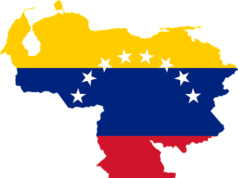The day after the presidential election in the Democratic Republic of the (DR) Congo, the government has blocked access to the Internet in large parts of the country. This was suggested by several internet companies in the country on Monday. The opposition is disturbed by this. Like the government, she already claimed the election victory for herself.
The access was interrupted „indefinitely on the instructions of the government,“ said the Internet operator Global in Kinshasa. Similarly, representatives of major Internet companies Vodacom and Airtel commented. The Internet ban began when first election results from the country’s polling bureaus were published via Twitter. Access to the net as well as to the social networks was not possible on Monday, as AFP correspondents from the capital Kinshasa, the city Goma in the east as well as the cities Beni and Lubumbashi reported.
The opposition then put the government under a manipulation attempt. Opposition candidate Martin Fayulu’s team accused the government of wanting to disguise the „overwhelming victory“ of Fayulus through the Internet blackout. The Secretary-General of the influential Catholic Bishops‘ Conference, Donatien Nshole, regretted the Internet ban.
Wrestling for election victory
The election campaign manager of the opposition politician Felix Tshisekedi, Vital Kamerhe, said the first counts showed the two opposition candidates head to head, each with about 40 percent of the vote. Former Home Secretary Emmanuel Ramazani Shadary, the outgoing candidate of outgoing President Joseph Kabila, has reached only about 13 percent, Kamerothe said. However, a large part of the votes has not yet been considered.
On the other hand, Kabila’s chief of staff, Nehemie Mwilanya, said he was confident that Shadary had won. He did not name percentages. „Victory is safe for us,“ said Mwilanya. President Kabila has ruled since his father’s assassination in 2001. Should he actually give up his post-election post, that would be the first democratic change of power in the resource-rich country that gained independence from the colonial power of Belgium in 1960.
Commission: Preliminary results until 6 January
The National Electoral Commission wants to publish first partial results on Tuesday. A provisional result of the presidential election is due to be announced on January 6, according to the Independent Election Commission (CENI). On 18 January, Kabila’s successor is then to be sworn in – and that, although not in all parts of the country until then can be elected. Affected are around 1.2 million people who can only vote in March 2019. The Electoral Commission justified this with an Ebola outbreak and terror threat. Even before the election, there had been unrest in the affected regions.
Originally, the presidential election should have taken place in the 81 million strong country already on December 23, but had to be postponed because of fires destroyed election computer. A controversial vote could lead to a wave of violence, as was the case after the 2006 and 2011 votes. The security situation on the borders with Rwanda, Uganda and Burundi, where dozens of militias are active, is particularly precarious.
Violence and mishaps on Election Day
Election observers of the Catholic Bishops‘ Conference (CENCO) registered a total of 194 violent incidents. An electoral commission official and a policeman were killed in the Walungu district of South Kivu province, Commission President Corneille Nangaa said Sunday evening. Previously, an angry crowd accused the electoral assistant to influence the vote, Nangaa said. The employee tried to repair a voting machine. The crowd lynched him, and the policeman died as well.
Many people were waiting outside the polling stations
Activist Patient Bashombe reported a third person dead in Walungu when the police opened the fire. In the east of the country, armed rebels forced the closure of some polling stations, in the southwestern province of May-Ndombe devastated people exiled polling stations because ballots were missing. Around 540 voting machines collapsed, with some polling stations still open after the official closing time on Sunday, as voters in long lines were waiting to vote.



